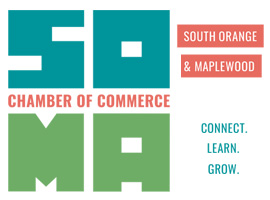Sakwa book review
There's hardly anyone out there besides nan talking about The Last Peace book.. Sounds like no one follows him. lol he definitely has a strong pro-Russia bias.
Here Sakwa says Russia's goal is to move towards Odessa and a regime change:
I also love Sakwa and all of the pundit's who say - if Zelensky said he would not join NATO - there would not be a war. The is at the top of the list for Kremlin propaganda. This would have done zero to the Biggest Nazi Scourge since WWII which is what was broadcast daily on Russian TV in addition to the genocide in the Donbas.
Do you think Ukraine agreeing not to join NATO would have fixed these 2 huge problems. Or were they purely made up to sell the War - (I mean special operation) to the Russian people. Would Russians be willing die over the threat of Ukraine joining nato - or would they die in order to save the world (AGAIN) from Nazis?
Someone has to pick a lane here - and for those writing books on the subject I hope they frame how the war was sold to the russian people via Vlad Media.
jamie said:
Finally, the book ascribes a pluralist ideology to the separatist movement in Donbas, but it also later recognises that ‘its ultimate goals were probably unclear even to its participants.’ The insurgency, driven, among other things, by the rejection of all things Ukrainian, was anything but pluralist. It was, as Sakwa correctly argues, a response to the perceived political domination of Ukrainian ‘monists.’ Still, its leaders and many foot soldiers supported the same ‘monist’ slogans only under a different flag and with a different nation in mind. Their anti-fascist rhetoric served as the same ‘empty signifier’ as the pro-EU rhetoric of the right-wing militants on Maidan.
This is probably one of the weirder arguments. If you look at the criteria a country needs to meet to join the EU, it's clearly a "pluralist" perspective --- respecting the rights of minorities, free and open democratic elections, consistent application of the rule of law. A Ukraine that is serious about joining the EU is one that will have to move in the direction of more pluralism, not less, and which is in marked contrast to the autocratic nature of Putin's rule.
I often get the sense that Putin's supporters use words without really understanding what they mean, or that they assume their audience is unfamiliar with these words.
I finished reading A New Foreign Policy: Beyond American Exceptionalism by Jeffrey Sachs written in 2017.
Sachs argues a few things such as:
- The world is becoming multi polar and we need take not an adjust our foreign policy accordingly.
- American foreign policy needs to evolve immediately away from America-first unilateralism to a policy that seeks to find common ground with adversaries and build trust.
- America has squandered chances to build a more trust based, collaborative international system especially following the end of the Cold War.
I agree with his arguments - arguments he could have made in an essay instead of a book.
Beyond the arguments about what is to be done, the book failed to impress me. He categorized the mis steps of American administrations starting with Clinton and is especially critical of the Trump Administration. The criticisms were generally valid.
However, he carried on like the only country in the world with agency is the United States. In arguing that the U.S. pushed NATO up to Russia's borders, he fails to note that the Baltics were desperate to be admitted to NATO. In arguing that North Korea's endless bellicosity is a respond to fears that the U.S. will invade or try to destabilize the Kim regime. This conveniently overlooks the little detail that the Korea War is the one war since 1945 where our involvement was actually justifiable and overlooks the fact that since 1945, the raison d'etat of the Kim regime has been reunification with South Korea on the Kim regime's terms.
tjohn said:
A New Foreign Policy: Beyond American Exceptionalism by Jeffrey Sachs written in 2017.
However, he carried on like the only country in the world with agency is the United States.
tjohn said:
I finished reading A New Foreign Policy: Beyond American Exceptionalism by Jeffrey Sachs written in 2017.
Sachs argues a few things such as:
- The world is becoming multi polar and we need take not an adjust our foreign policy accordingly.
- American foreign policy needs to evolve immediately away from America-first unilateralism to a policy that seeks to find common ground with adversaries and build trust.
- America has squandered chances to build a more trust based, collaborative international system especially following the end of the Cold War.
I agree with his arguments - arguments he could have made in an essay instead of a book.
Beyond the arguments about what is to be done, the book failed to impress me. He categorized the mis steps of American administrations starting with Clinton and is especially critical of the Trump Administration. The criticisms were generally valid.
However, he carried on like the only country in the world with agency is the United States. In arguing that the U.S. pushed NATO up to Russia's borders, he fails to note that the Baltics were desperate to be admitted to NATO. In arguing that North Korea's endless bellicosity is a respond to fears that the U.S. will invade or try to destabilize the Kim regime. This conveniently overlooks the little detail that the Korea War is the one war since 1945 where our involvement was actually justifiable and overlooks the fact that since 1945, the raison d'etat of the Kim regime has been reunification with South Korea on the Kim regime's terms.
I give you credit for reading a book outside of your usual.
The part about the US is true, or was true until recently. After WWII and especially after the Cold War ended, the US was the most powerful country in the world. That's why it is referred to as the unipolar hegemon. The Sakwa book, "The Lost Peace" is about how this affected the decisions after the end of the Cold war and how we went in a wrong direction and ended up in continuous war trying to maintain what has already been lost. Russia wanted to be a part of Europe and was even interested in joining NATO. The US wanted to be the only big fish in the pond and pushed Russia away and made Europe it's vassal state. That's why Biden could talk about blowing up Nordstream in front of Olaf Schultz and Olaf just nodded and agreed--to deindustrialized Germany for Ukraine. The rest of Europe has been doing the same and they are going down the toilet. The only one to resist has been Viktor Orban in Hungary and they have threatened him into semi-compliance.
People in Europe are starting to push back and the elections there have not been going as the EU/NATO would like. Meanwhile Russia has bonded with China and other countries to push for a multipolar world and things are changing. Our way of dealing with this change is to just fight and sanction more and we are going to end ups collapsing like the Roman Empire. This is what Jeffrey Sachs is talking about.
Sponsored Business
Promote your business here - Businesses get highlighted throughout the site and you can add a deal.
















Here's a good rundown about Frontline Ukraine (I thought it was Lost Peace - but I'm sure it's a similar narrative.: You can read his other book cut and pasted in the other thread by nan:
Despite its clear strengths, the book has its own shortcomings. Sakwa takes a pointedly neutral view on the evolution of Russia’s political regime, putting the blame for its exclusion from Europe primarily on Western leaders. Their policies, however, were designed partially in response to the transformation of Putin’s rule. Russia’s swift authoritarian regression in the early 2000s, and rejection of Europe’s conditionality policies ruled out any integrative projects with the EU. The subsequent spillover of Putin’s internal crackdown against the Russian opposition, into EU member-states, precluded even substantive bilateral dialogue with some European capitals. In his prior books – The Crisis of Russian Democracy (2010) and The Quality of Freedom: Putin, Khodorkovsky and the Yukos Affair (2009) – Sakwa deals extensively with the ‘democratic deficit’ of Russia’s institutional order, weakened by the arbitrary and extra-judicial practices of its ruling factions. It would seem no less relevant to discuss this when searching for causes of Russia’s estrangement from the West.
The book’s account of Russia’s motives is also, at times, contradictory. The author explains the Crimean annexation as driven by strategic needs to maintain military presence in the Black Sea. At the same time, he implies that Putin’s decision resulted from his rage ‘at the coming to power of Russophobic nationalists’ in Kyiv. Rational calculations and emotional outbursts are ascribed to Putin with equal ease, and seem to carry equal weight in the story.
The book’s account of Russia’s motives is also, at times, contradictory.
Sakwa also argues, rather incredulously, that the Ukrainian government could have prevented the loss of Crimea with ‘timely concessions’ on Russian language, federalism and ‘other long-term demands.’ It is difficult to imagine that Putin could have trusted the policies of the very government he refused to recognise as legitimate, and which he characterised as Western puppets. His hurry with the removal of the Kyiv-appointed prime minister, and the imposition of Moscow’s loyalist, or the rush to the Crimean referendum, with no concern for formalities indicate that Putin was set on the peninsula’s capture.
Similarly, the author thinks that the ‘deal’ between Yanukovych and the opposition could have worked had ‘Western powers and Russia served as guarantors’ and the opposition was ‘less populist.’ This also seems unrealistic – after a public massacre on Maidan neither the opposition nor Western leaders could restraint protesters on the streets. It was the fear of the crowd seeking accountability for the fallen ‘heavenly hundred’ that drove Yanukovych and his cronies out of Kyiv on the night of February 21
While being prescient in describing Russia’s views of excessive Western meddling in Ukraine, Sakwa also seems to suggest that Putin’s policy was almost exclusively about standing up to American hegemony. He describes the takeover of Crimea as Putin’s ‘bold stroke’ – a strange accolade to a blatant violation of international law – and interprets it as a conscious ‘challenge to the US right to draw red lines.’ This overlooks the inherent value Putin has attached to maintaining Ukraine within Moscow’s political orbit, and the threat he associates with the precedents of irregular power transfers in neighbouring states. Instead of serving as a model for the Russian opposition, Ukraine now stands as a sad reminder of the tragic consequences often associated with revolutionary oustings.
Finally, the book ascribes a pluralist ideology to the separatist movement in Donbas, but it also later recognises that ‘its ultimate goals were probably unclear even to its participants.’ The insurgency, driven, among other things, by the rejection of all things Ukrainian, was anything but pluralist. It was, as Sakwa correctly argues, a response to the perceived political domination of Ukrainian ‘monists.’ Still, its leaders and many foot soldiers supported the same ‘monist’ slogans only under a different flag and with a different nation in mind. Their anti-fascist rhetoric served as the same ‘empty signifier’ as the pro-EU rhetoric of the right-wing militants on Maidan.